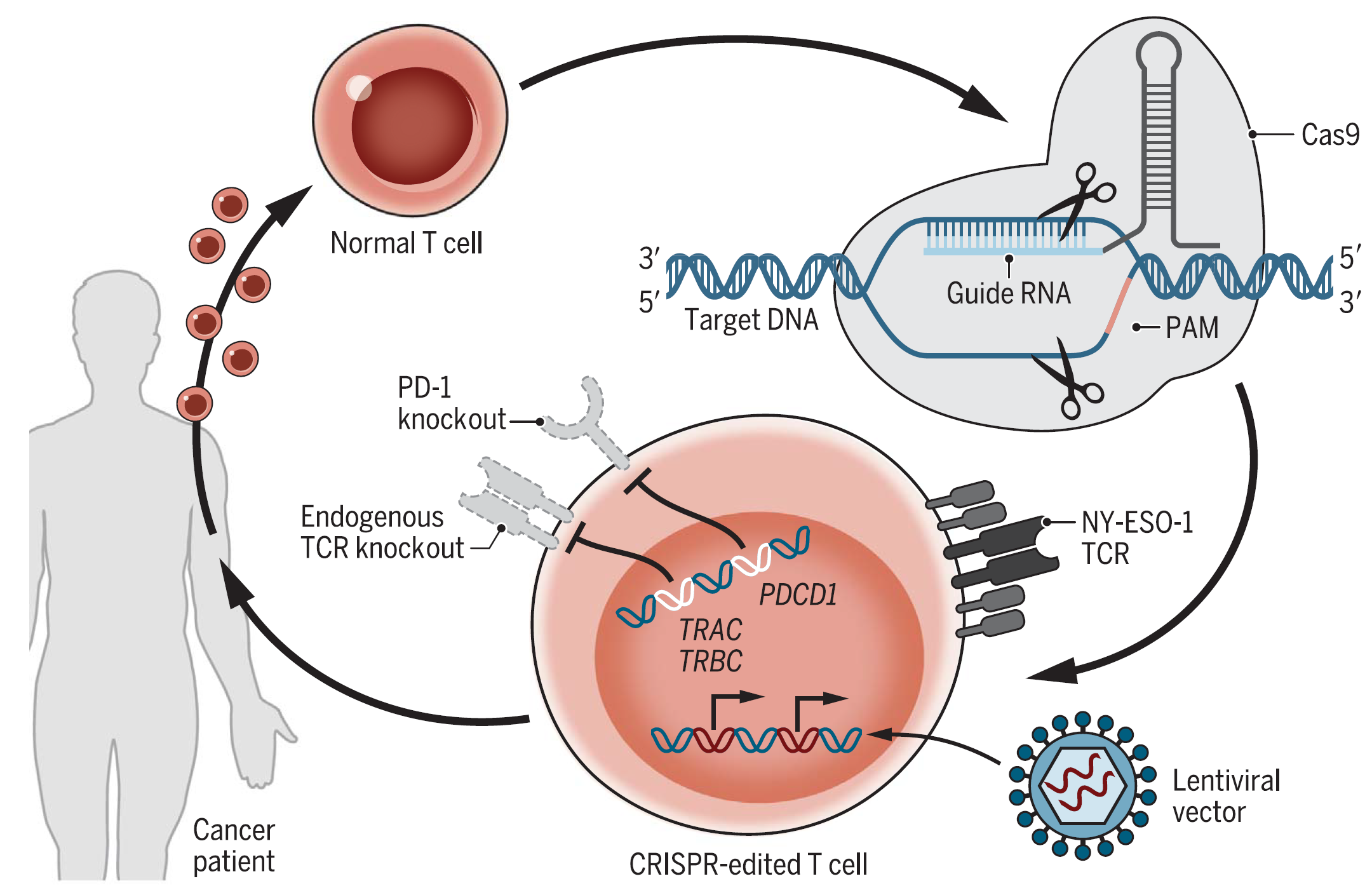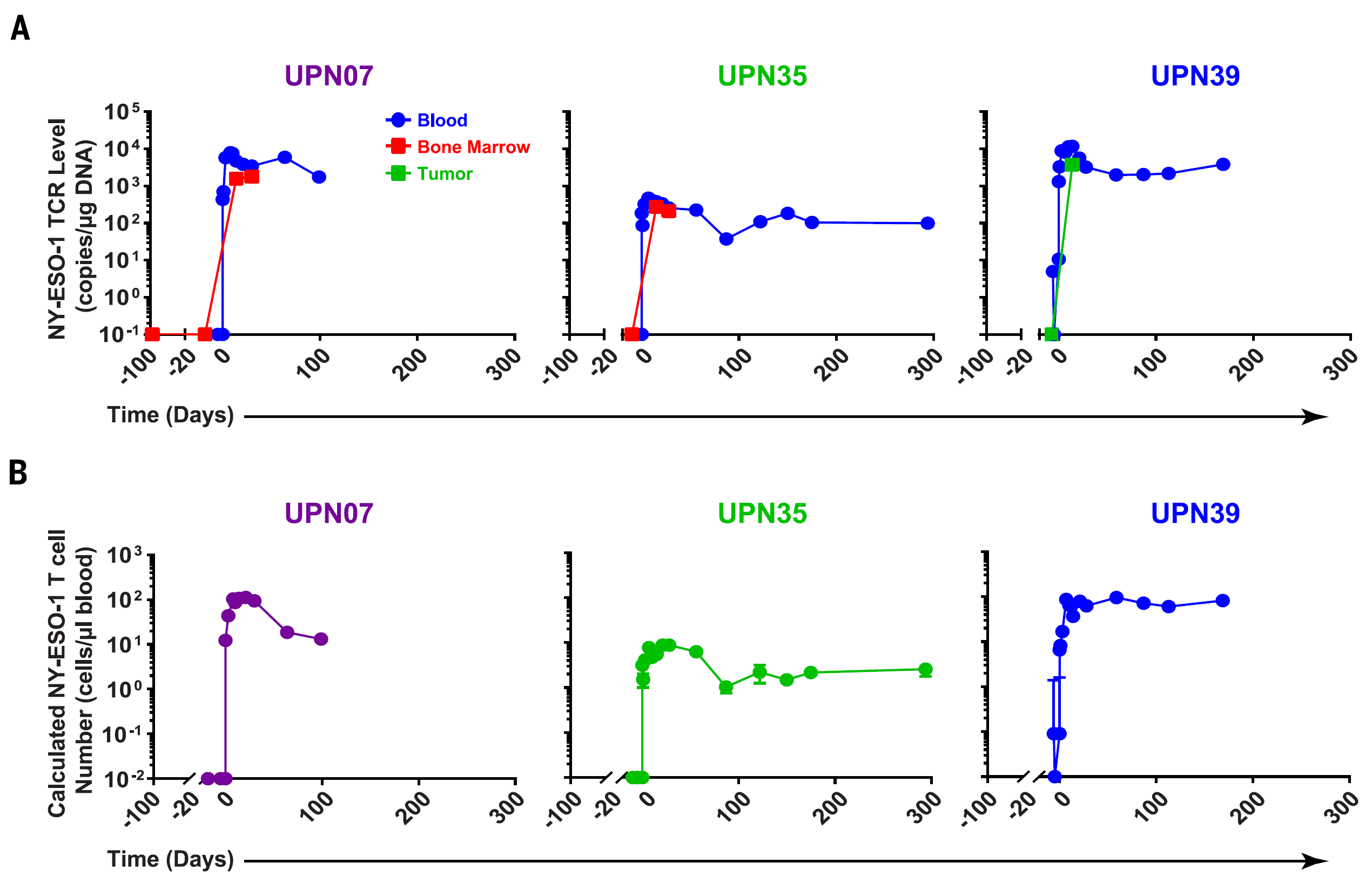2020-04-05 by Quick Biology Inc.
CRISPR-Cas9 endonuclease is a powerful gene-editing technology. Direct editing of cells by delivering Cas9 gene typically triggers an immune response, a big challenge for CRISPR gene editing therapies. While in ex vivo, cells are treated in a dish before transplantation, Cas9 immune response can be circumvented as Cas9 transiently expresses, Cas9 is cleaned up before corrected cells are administered into patients (ref1).
In Science, researchers in the University of Pennsylvania reported a first-in-human phase 1 clinical trial to test the safety and feasibility of CRISPR-engineered T cells in patients with refractory cancer (ref2). By CRISPR-Cas9, they removed endogenous T cell receptors (i.e. TRAC and TRBC) to enhance the expression of a synthetic, cancer-specific TCR transgene (NY-ESO-1). To improve antitumor immunity, they also deleted the third gene PDCD1 (Fig.1). Excitingly, transplantation of these engineered T cells resulted in durable engraftment for up to 9 months (Fig.2), suggesting immunogenicity is minimal and demonstrating the feasibility of CRISPR gene editing in cancer therapy.
Figure 1: CRISPR-Cas9 engineering of T cells in cancer patients. T cells (center) were isolated from the blood of a patient with cancer. CRISPR-Cas9 ribonuclear protein complexes loaded with three sgRNAs were electroplated into the normal T cells, resulting in gene editing of the TRAC, TRBC1, TRBC2, and PDCD1 (encoding PD-1) loci. The cells were then transduced with a lentiviral vector to express a TCR specific for the cancer-testis antigens NY-ESO-1 and LAGE-1 (right). The engineered T cells were then returned to the patient by intravenous infusion, and patients were monitored to determine safety and feasibility. PAM, protospacer adjacent motif. (ref2)

Figure 2: Sustained in vivo expansion and persistence of CRIPSPR-Cas9-engineered T cells in patients. Key: UPN07, UPN35 and UPN39 are patients’ ID. NY-ESO-1 is cancer-specific TCR transgene (NY-ESO-1)(ref2)

Quick Biology is an expert in CRISPR-Cas9 NGS screening and low-input RNA sequencing. Find More at Quick Biology.
Ref:
- 1. Crudele, J. M. & Chamberlain, J. S. Cas9 immunity creates challenges for CRISPR gene editing therapies. doi:10.1038/s41467-018-05843-9
- 2. Stadtmauer, E. A. et al. CRISPR-engineered T cells in patients with refractory cancer. Science (80-. ). 367, (2020).



